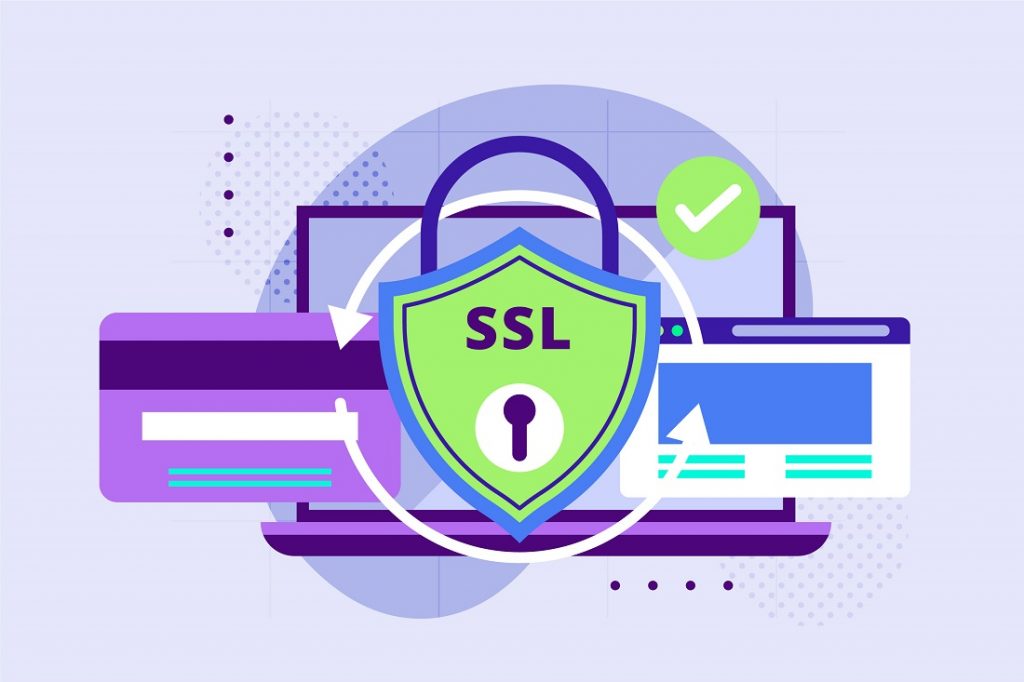Have you ever wondered what ensures that the information you send through a website does not fall into the wrong hands? That guarantee comes from a crucial system: SSL Certificates. Without it, data can be exposed to risks, leaving both users and companies that handle sensitive information vulnerable.
What is an SSL Certificate and why is it important?
An SSL Certificate (Secure Sockets Layer) is a technology that encrypts information between a web server and the user’s browser. This process converts the data into unreadable code for any third party attempting to intercept the communication. When a website has a valid SSL Certificate, you will see a small padlock in the address bar and the prefix “https://” instead of “http://”, indicating that the connection is secure.

The importance of having an SSL Certificate is that, without this protection system, personal data, such as passwords, credit card numbers or even email addresses, can be vulnerable to hacker attacks. In addition to security, SSL also improves user trust. Today, browsers mark sites without SSL as “not secure,” which can discourage visitors from entering your page, affecting your brand reputation and, in many cases, decreasing sales or interactions.
Implementation of SSL Certificates: A simple and essential step
Implementing an SSL Certificate on your website is not as complicated as it seems. SSL providers offer a variety of options to suit different types of sites, from personal blogs to online stores. Most hosting providers already integrate this functionality into their services, making the task even easier. Once installed, the certificate automatically establishes a secure connection with users, protecting the information transmitted.
The implementation process includes three main phases: purchasing or acquiring a certificate, installing it on the web server, and configuring all pages on the site to use the HTTPS protocol. If you have questions, there are support services, such as those we offer at Exeditec, that specialize in ensuring the correct implementation of SSL certificates and their maintenance.
Security and quality: How to choose a good SSL Certificate?
Not all SSL Certificates are the same. There are several types of certificates, such as domain validation (DV), organization validation (OV), and extended validation (EV). The simplest ones, such as DV, simply ensure that the domain owner has demonstrated control over it, while EVs offer the most complete validation, displaying the green bar and the company name in the browser, which adds a additional level of trust.
The quality of an SSL Certificate is also measured by the level of encryption. Currently, most certificates use 256-bit encryption, considered the highest security standard. However, beyond the type of certificate, the most important thing is that it is current and that it is issued by a trusted certificate authority (CA). Otherwise, the browser could warn users that the site is not secure, even if it has some type of SSL installed.
What happens if a website does not have an SSL Certificate?
The lack of an SSL Certificate can have serious consequences for any website. Without an SSL, data sent between the browser and the server can be intercepted by hackers, which can result in data theft. This not only puts users at risk, but can also lead to a massive loss of trust in your brand.
Additionally, search engines like Google prioritize sites that use SSL. That is, if you don’t have it, your site could appear in lower positions in search results, affecting web traffic. Also, as we mentioned before, browsers label sites without SSL as “not secure,” which can scare visitors away from the page immediately.
Tips to keep your SSL Certificate up to date
An SSL Certificate is not a system that is installed once and forgotten. It is important to stay on top of your renewal, as most certificates expire every one or two years. Additionally, if you make significant changes to your site, such as migrating to a new server, it is crucial to verify that the certificate is correctly installed and working.
Another important aspect is to ensure that all pages on the website, including subdomains, use HTTPS. This can be achieved by proper server configuration and using permanent HTTP to HTTPS redirects.
Follow our Blog to stay updated on the world of Software, Digital Marketing and general advice from the computer world.